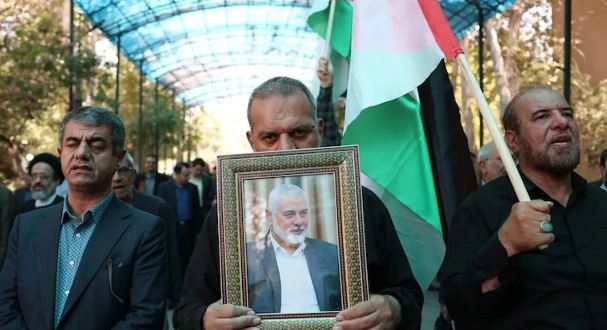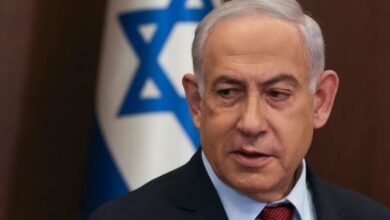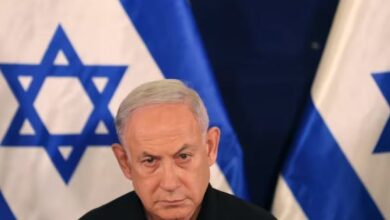Netanyahu Accused of Undermining Cease-Fire Talks with Hamas Leader Assassination

Israeli Prime Minister Benjamin Netanyahu faces accusations of sabotaging cease-fire negotiations following the assassination of a key Hamas leader. This move has intensified tensions and raised questions about the future of peace efforts in the region.
The assassination, which took place during delicate cease-fire talks, has been seen by many as a deliberate act to derail the negotiations. Netanyahu’s administration has been under scrutiny for its hardline stance against Hamas, and this incident has further complicated the already fragile dialogue between the two parties.
Hamas, the Palestinian militant organization, confirmed the death of its leader, attributing it to an Israeli airstrike. The leader, whose identity has not been publicly disclosed, was reportedly a significant figure in the group’s military and political operations. Hamas has vowed retaliation, escalating fears of renewed violence in the region.
Netanyahu’s office has not officially commented on the assassination, but sources within the Israeli government suggest that the decision was made to target individuals deemed a direct threat to national security. Critics, however, argue that such actions undermine efforts to achieve a long-term cease-fire and peaceful resolution.
International reactions have been mixed. Some nations have condemned the assassination, calling for restraint and renewed focus on diplomatic solutions. Others have expressed support for Israel’s right to defend itself against militant threats. The incident has also drawn the attention of various human rights organizations, which are calling for a thorough investigation into the legality and repercussions of the targeted killing.
The timing of the assassination is particularly contentious, as it coincides with ongoing international efforts to broker peace. Mediators from countries such as Egypt and Qatar have been working tirelessly to facilitate dialogue between Israel and Hamas. The killing of a key Hamas leader could potentially derail these efforts, making it more challenging to achieve a sustainable cease-fire.
Netanyahu’s political opponents have seized on the incident to criticize his approach to the conflict. They argue that his administration’s aggressive tactics are counterproductive and only serve to fuel further violence and instability. Calls for a more balanced and diplomatic strategy have been growing louder within Israel and the international community.
As the situation continues to evolve, the assassination of the Hamas leader marks a significant setback in the quest for peace. The international community now watches closely, hoping that cooler heads will prevail and that renewed efforts towards dialogue and reconciliation will emerge.





